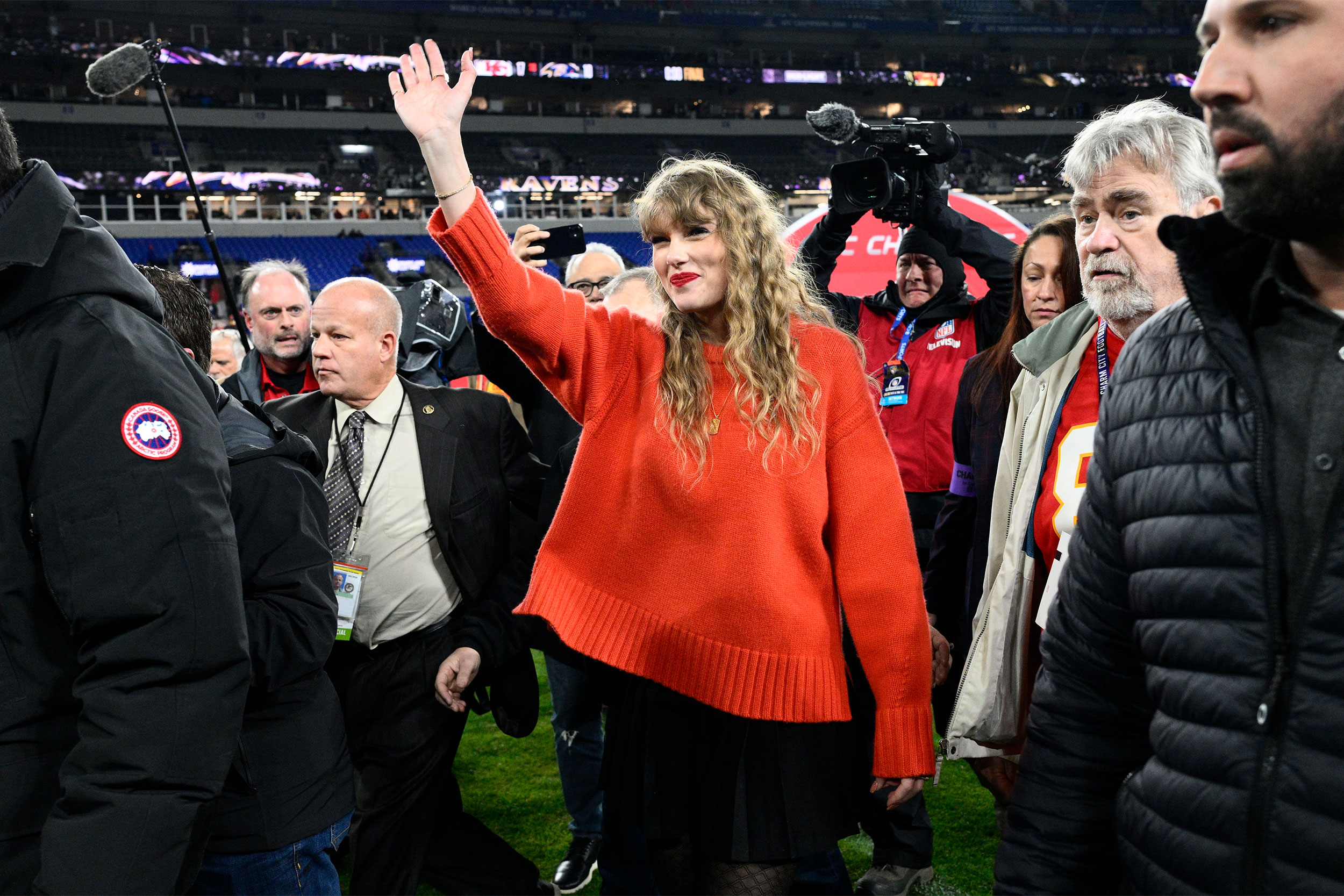Who cares what Taylor Swift thinks?

Rumors say pop superstar Taylor Swift will soon encourage her fans to vote for President Biden in the November election.
Nick Wass/AP Photo
Lots of people! But that doesn’t mean she can sway an election.
Speculation that Taylor Swift will endorse President Biden for re-election immediately after the Super Bowl has been amplified on social media and by conservative news outlets in recent weeks, stirring outrage among some on the right toward the singer-songwriter. For her part, Swift has given no indication that she intends to make such an announcement.
Even if she did, why would a pop superstar coming out in support of a political candidate provoke such a strong reaction? Sure, Swift has millions of fans who buy her music, flock to her concerts, and follow the daily ups and downs of her love life like investors do the stock market. But when it comes to voting, does anyone really care what Swift or other celebrities think about an election?
Kevin DeLuca, Ph.D. ’23, is an assistant professor of political science at Yale who has studied the impact of newspaper endorsements on politics. He spoke with the Gazette about the declining power of endorsements in this deeply partisan climate and whether Swift’s approval could meaningfully influence the 2024 presidential election. The interview has been edited for clarity and length.
Do endorsements still matter or have they lost the power to persuade voters like they once did?
I tend to focus on three things, at least with newspapers. But I think these apply to a Taylor Swift endorsement, as well.
The first is, what does the audience or the potential audience already know about the issue? One reason newspaper endorsements were good is people didn’t know a lot about their local candidates and the endorsements would teach them something about the candidate. If you think about Taylor Swift and the presidential election: People already know a lot about Biden and Trump; it’s not clear that a Taylor Swift endorsement teaches them anything. It’s going to be really hard for anyone to convince anyone to change their presidential vote, including Taylor Swift.
The second thing to think about: The public is super polarized on these issues. And so, even a potentially influential endorsement has a lot of work to do to get someone to change their mind. The pool of persuadable people is really, really small now. And then, the people who are potentially persuadable and receptive to Taylor Swift, in particular — that’s another subset. So, in aggregate, those two things are working against it.
The third thing is the informativeness. I think of it as the “surprising-ness” of an endorsement; the unexpectedness of it. A Democratic governor endorsing a Democratic candidate — not that surprising. But if a Democratic governor supports a Republican candidate, that’s potentially useful for voters. This Republican has the support of a Democrat — maybe he’s good in some way? You might think they’re making their endorsement based on candidate quality rather than just partisanship.
I don’t think anyone, Democrats or Republicans, would be surprised if Taylor Swift endorsed the Democrat. It’s already expected, in a way. It’s already been built into people’s decisions and information, so we’re not really learning much from that endorsement.
Can political scientists measure a specific endorsement’s influence in an election?
It would be very hard. The best-case scenario for finding an effect would be: There are some voters who already lean Democrat and are maybe not that plugged into politics; they’re not planning on voting. And Taylor Swift comes out and says, “It’s really important, you should go vote. You should vote for Democrats.” And then they decide to register to vote and to turn out. That’s a small group, I think, and they’re going to be spread out across all 50 states, so they’re going to have a small effect. I think that’s the avenue where we would see something — with turnout, with registration, that sort of thing. I’m still skeptical at the national presidential level that it’s a significant difference.
Are some demographic groups more receptive to endorsements than others?
Theoretically. In one paper where the researchers looked at presidential endorsements, they found that independents are more open to them. And it makes sense, because they’re not necessarily in one camp or the other. An endorsement from someone they like might help tip the scales a little bit. In general, the biggest divide is going to be with high-information voters who already know a lot about politics. They’re going to be the least persuadable either way. Whereas a low-info person — maybe you’re a big fan of Taylor Swift, but you’re not really into politics — those people are the ones who might be susceptible to that sort of thing.
I think of it from the voters’ perspective: What new information are they learning? If it’s an expected endorsement, like a Democrat endorsing a Democrat, you’re not really learning much. If you already know a lot about the candidates, it’s hard to teach you new things.




